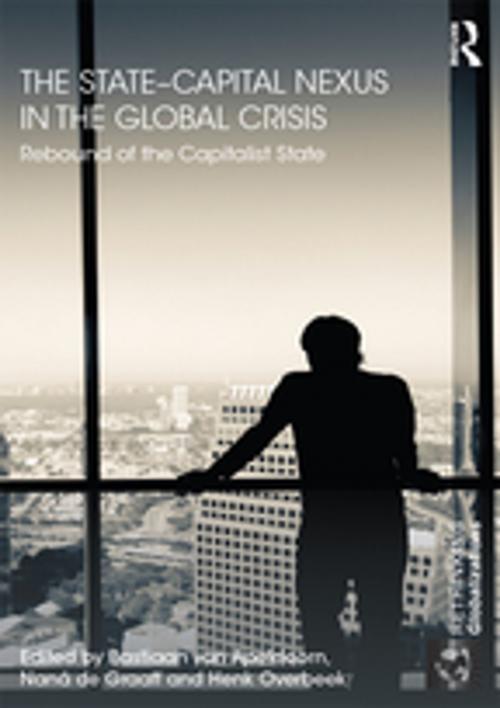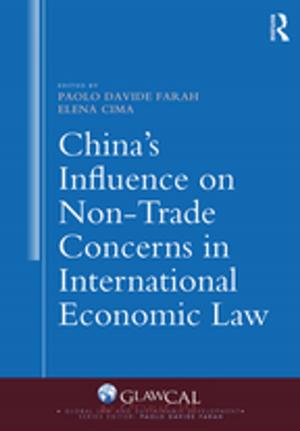The State–Capital Nexus in the Global Crisis
Rebound of the Capitalist State
Nonfiction, Social & Cultural Studies, Political Science| Author: | ISBN: | 9781351540339 | |
| Publisher: | Taylor and Francis | Publication: | July 5, 2017 |
| Imprint: | Routledge | Language: | English |
| Author: | |
| ISBN: | 9781351540339 |
| Publisher: | Taylor and Francis |
| Publication: | July 5, 2017 |
| Imprint: | Routledge |
| Language: | English |
In the wake of the outbreak of the global crisis in 2008, many observers expected the state to assume command over a faltering neoliberal finance-led model of capitalism. We now know that this expectation was by and large mistaken. There is indeed an ongoing re-calibration of the state-capital relations, but in many instances the state has become more actively and more deeply involved in extending the reach of markets rather than in constraining markets in the interests of an equitable response to the crisis.
This volume offers both theoretical perspectives and empirical studies by a selection of leading Critical International Political Economy scholars on the question how and to what extent we are witnessing a return of the state and a transition towards a new phase of global capitalism. The chapters cover a wide array of topics: from the rise of China and other emerging economies of the Global South, the role of state-owned enterprises such as Sovereign Wealth Funds and National Oil Companies and global environmental politics, to the role of labour in Europe and US grand strategy / foreign policy making in the post-Cold War period.
This book was published as a special issue of Globalizations.
In the wake of the outbreak of the global crisis in 2008, many observers expected the state to assume command over a faltering neoliberal finance-led model of capitalism. We now know that this expectation was by and large mistaken. There is indeed an ongoing re-calibration of the state-capital relations, but in many instances the state has become more actively and more deeply involved in extending the reach of markets rather than in constraining markets in the interests of an equitable response to the crisis.
This volume offers both theoretical perspectives and empirical studies by a selection of leading Critical International Political Economy scholars on the question how and to what extent we are witnessing a return of the state and a transition towards a new phase of global capitalism. The chapters cover a wide array of topics: from the rise of China and other emerging economies of the Global South, the role of state-owned enterprises such as Sovereign Wealth Funds and National Oil Companies and global environmental politics, to the role of labour in Europe and US grand strategy / foreign policy making in the post-Cold War period.
This book was published as a special issue of Globalizations.















